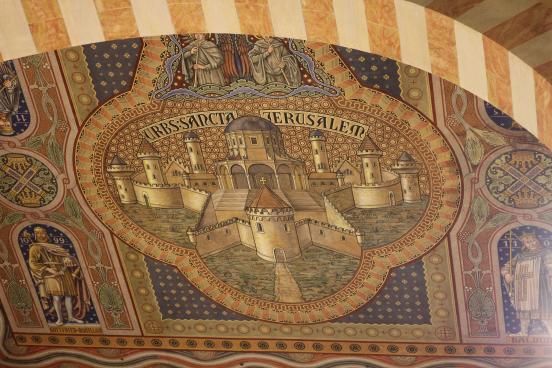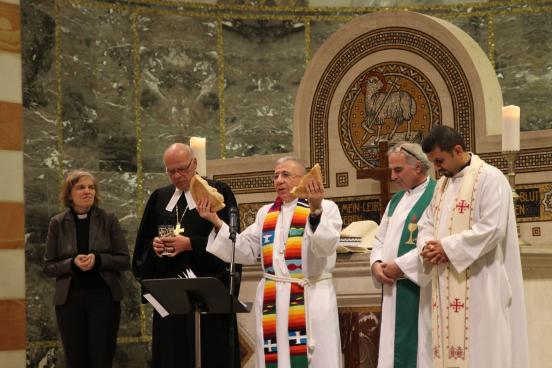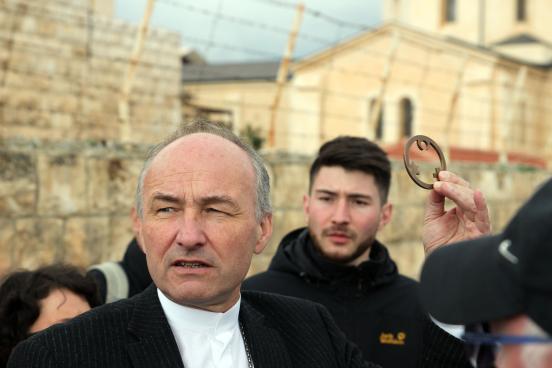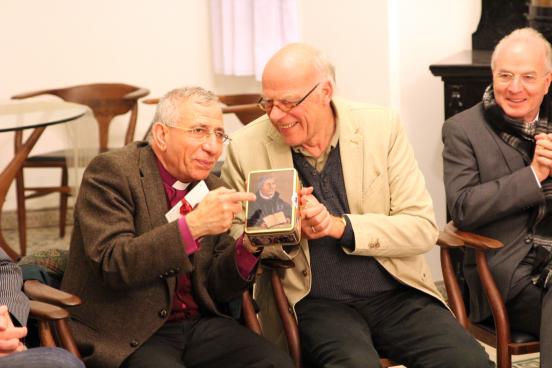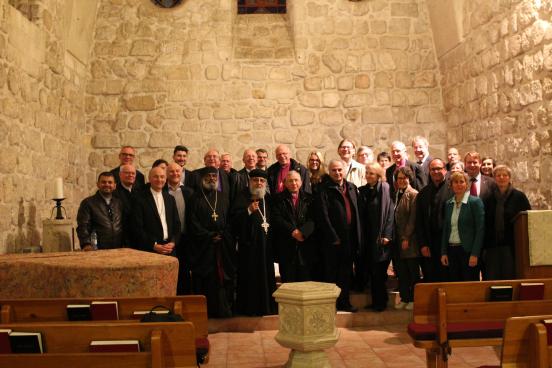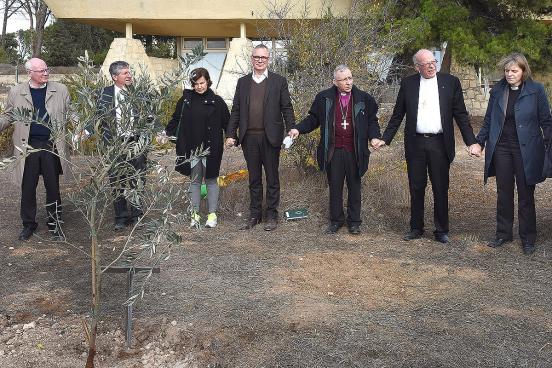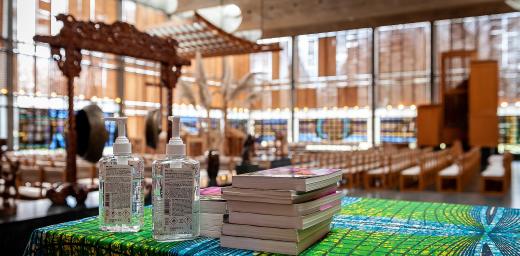An olive tree that signifies close ties
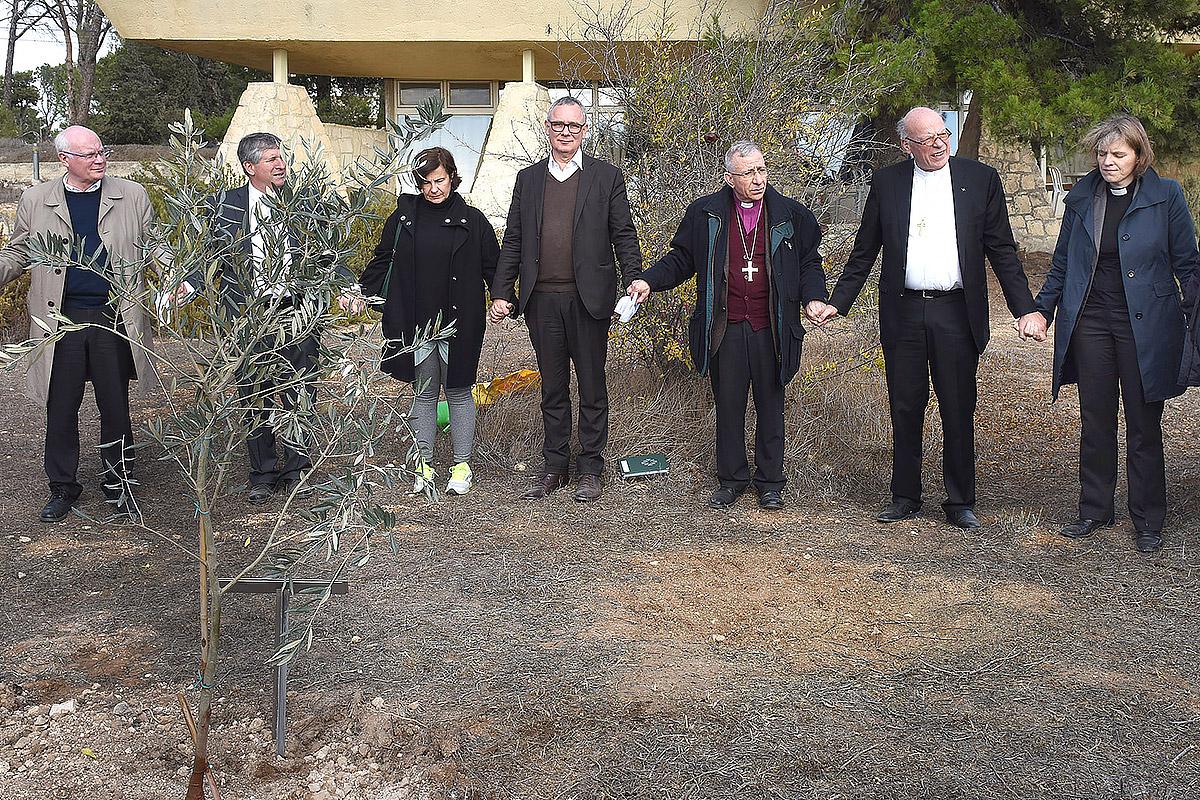
As a symbol of close ties between the ELCJHL and the LWF a delegation of the GNC/LWF planted an olive tree in Jerusalem. Photo: epd/Debbie Hill
German National Committee of The Lutheran World Federation visits Jerusalem
(LWI) – In order to symbolize the close ties between Lutheran churches in Germany and The Lutheran World Federation (LWF) and its partners in Jerusalem, a delegation of the German National Committee of the Lutheran World Federation (GNC/LWF) that recently visited Jerusalem planted an olive tree on the Mount of Olives. This was also meant to symbolize the significance of their mutual endeavors.
Inspired by the Luther garden in Wittenberg, the planting took place with of one of its main visionaries present, landscape architect Dr. Andreas Kipar. “Growing and growing together are two important aspects of the Wittenberg Luther garden layout,” Kipar explained. “Each tree grows according to its own nature, but it is only in combination with the other trees that we gain the intended overall impression – that makes it an interactive monument in the best sense.” The olive tree on the Mount of Olives stands for the bonds between the eleven LWF member churches in Germany, the Evangelical Lutheran Church in Jordan and in the Holy Land (ELCJHL) and the LWF through many years of trustful cooperation.
In order to strengthen the trust and cooperation between the partners, representatives of the GNC/LWF visited Jerusalem and the Holy Land from 22 to 26 November.
A sign of solidarity and support
“We come to Jerusalem as guests. We want to see, hear and understand what it means to be Christians here. We know about the challenges and difficulties in this part of the world. That is why, for us Germans, the presence and peace-building work of the Lutheran church and the LWF in this place is particularly important. Our visit is also intended as a sign of solidarity and support,” said Bishop Gerhard Ulrich, chair of the GNC/LWF.
The program included meetings with Dr. Munib Younan, bishop of the ELCJHL, and Ibrahim Azar, bishop elect, who will take office in January 2018. With approximately 3000 members, the ELCJHL is the only LWF member church in the region. A roundtable with representatives of the ELCJHL and other local churches opened the exchange on the complicated and multi-faceted situation of Christians in the Holy Land, who form a minority there.
I am always deeply impressed by the loyal and reconciling work at this place, as well as the prophetic witness of the LWF and the local Lutheran church.
Another aspect of the visit was getting to know the work of the LWF in Jerusalem and in particular on the Mount of Olives where the Augusta Victoria Hospital is located which is administered by the LWF. The German visitors were able to get a glimpse of the work of the hospital and hear about the current situation.
A visit to the LWF Vocational Training Center gave an impression of vocational training for various occupations available to young Palestinians.
The exposure tour concluded with a service held together with the Arabic-speaking congregation of the ELCJHL in the Lutheran Church of the Ascension on the Mount of Olives.
“I am always deeply impressed by the loyal and reconciling work at this place, as well as the prophetic witness of the LWF and the local Lutheran church. It is motivated by respect, peace and dialogue,” Bishop Ulrich remarked. “We have learned a lot from our partners in this regard, which will inspire us in our work at home.”
In the picture from left to right: GNC/LWF General Secretary Norbert Denecke, LWF Country Representative Mark Brown, Giorgia Kipar, landscape architect for the Luther garten Andreas Kipar, ELCJHL Bishop Munib Younan, GNC/LWF Chairperson Bishop Gerhard Ulrich, LWF Council Member Pröpstin Astrid Kleist.


